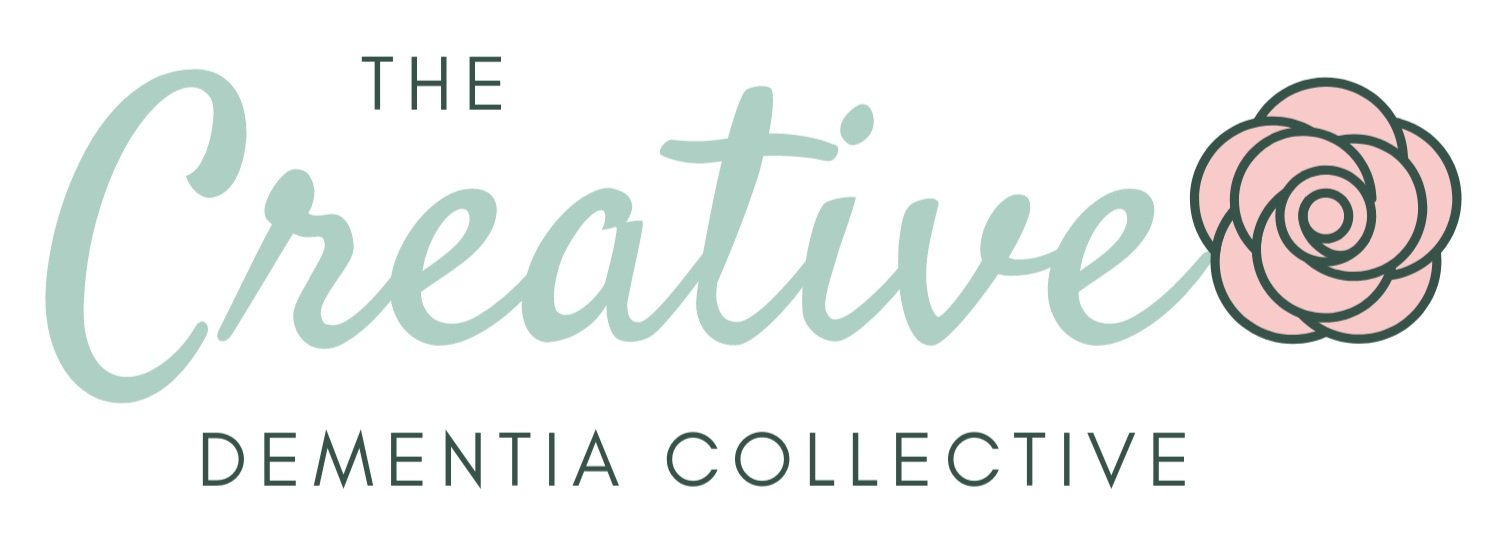Rosemary the Therapy Dog
Rosemary was named after a dear resident whom I had the pleasure of working with very early in my music therapy career. She had the same charming energy as this dog - and the jowls to match! Most of the time though we call our dog Rosie-- or Mama-- because of her nurturing, maternal nature.
My husband and I adopted her in July of 2020 after 7 weeks and 25 applications to adopt other dogs. It was during the height of the pandemic and so many families who were stuck at home had the same idea we did. At the time it was common for an advertisement for an adoptable dog to be posted online and for that dog to be matched to its new owners within an hour. There were many times we became discouraged. Not a week before we brought Rosie home, my brother asked me how the dog search was going; “We’re never gonna get a dog,” I lamented.
And then Chris got a message from The Pitbull Pen . We’d almost adopted a dog through them weeks earlier but it fell through, like dozens of others through various organizations. But the difference this time was when Trish Trickit, Founder of The Pitbull Pen, had taken the extra step of asking us our parameters for adoption and made note of them. She reached out to us when a Blue Pitbull named Honor (later earning the moniker of Rosemary) came to her organization and asked if we would be interested in meeting her.
This time, we met the dog the same day her ad was posted online. We fell in love with this droopy-faced, gentle lug of a dog who spent most of our first meeting laying next to a kennel of kittens trying to lick and comfort them.
She was in rough shape when we brought her home; underweight, stiff prickly fur with bald patches on her sides, scars around her snout and ears and a tail that lacked mobility. But she took to us right away and snuggled up with us that first night in her new home. Her wrinkly face was the only part of her that was pleasant to touch at that time so we discovered quickly just how pleasant it is to squeeze her floppy cheeks. All she wanted was attention and affection and we had bushels of it!
It wasn’t always easy at the beginning though, she was easily frightened, she would freeze on the leash when we took her for walks and we didn’t quite understand why, and she always looked sad… we learned in time though that that’s just her face!
It was quickly clear to us just how her demeanor was so naturally sweet and gentle. Sometime in the first weeks we discussed her potential to be a therapy dog someday. We knew it would take some effort as she seemed to not understand any words and being able to follow basic commands is a large part of the training process. She blossomed when given the opportunity, a healthier diet, and lots of praise.
In our first year together she learned lots of new commands, went swimming for the first time, played in chest-high snow, socialized with other dogs and completed her Canine Good Citizen training! The CGC is a ten-skill training program open to all dogs and it is the first step to becoming therapy certified. It focuses on the basics of good manners, obedience, responsible ownership, and strengthening the bond between owner and pet at home and in the community. In Washington state it means she meets the requirements for Pet Therapy, but we still are working toward formal therapy certification anyway.
We’re committed to the goal of full therapy certification for a number of reasons: because Rosie can do it, it will help me become a better owner, and pet therapy has a number of health benefits!
A study in Psychogeriatrics found that in long-term elderly care facilities, dog-assisted therapy helped reduce symptoms of depression. The research suggests that the dogs help facilitate social interaction and create positive emotional responses.
The Creative Dementia Collective is combating loneliness wherever we can. Coming out of 2020, we’ve seen the toll that isolation has taken on our community and especially those living with dementia. After all, prolonged isolation is as bad for your health as smoking cigarettes! Beyond combating loneliness, Pet Therapy boosts oxytocin (the “love hormone”) and other endorphins to help alleviate pain, improve mood, and lead to an overall more balanced mental and emotional state. Pet Therapy has also been shown to increase willingness to join activities, exercise, and interact with others. All of these factors lead to decreased depression and anxiety which can be prevalent among people living with dementia.
It’s important to understand the difference between a therapy dog and a service dog - like a guide dog for someone who is blind. While service animals are trained to complete certain specific tasks for one owner who is living with a disability, a therapy dog visits a number of individuals with varying health conditions.
Pet Therapy is a complementary or alternative therapy that is meant to enhance (not replace) other treatments. While it’s helpful for many, it’s not right for everyone. For instance, it might cause more harm than benefit for people with allergies or a deep fear of dogs. Anyone who does seek this service should also know that there are stringent rules in place to ensure that all therapy animals are clean, well-trained, and screened for appropriate behavior.
If you are curious about Pet Therapy, or if you (like me) fell in love with Rosie’s sweet face, schedule a free consultation today! You’ll be glad you did!



